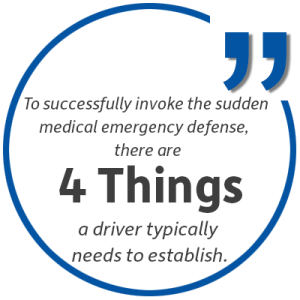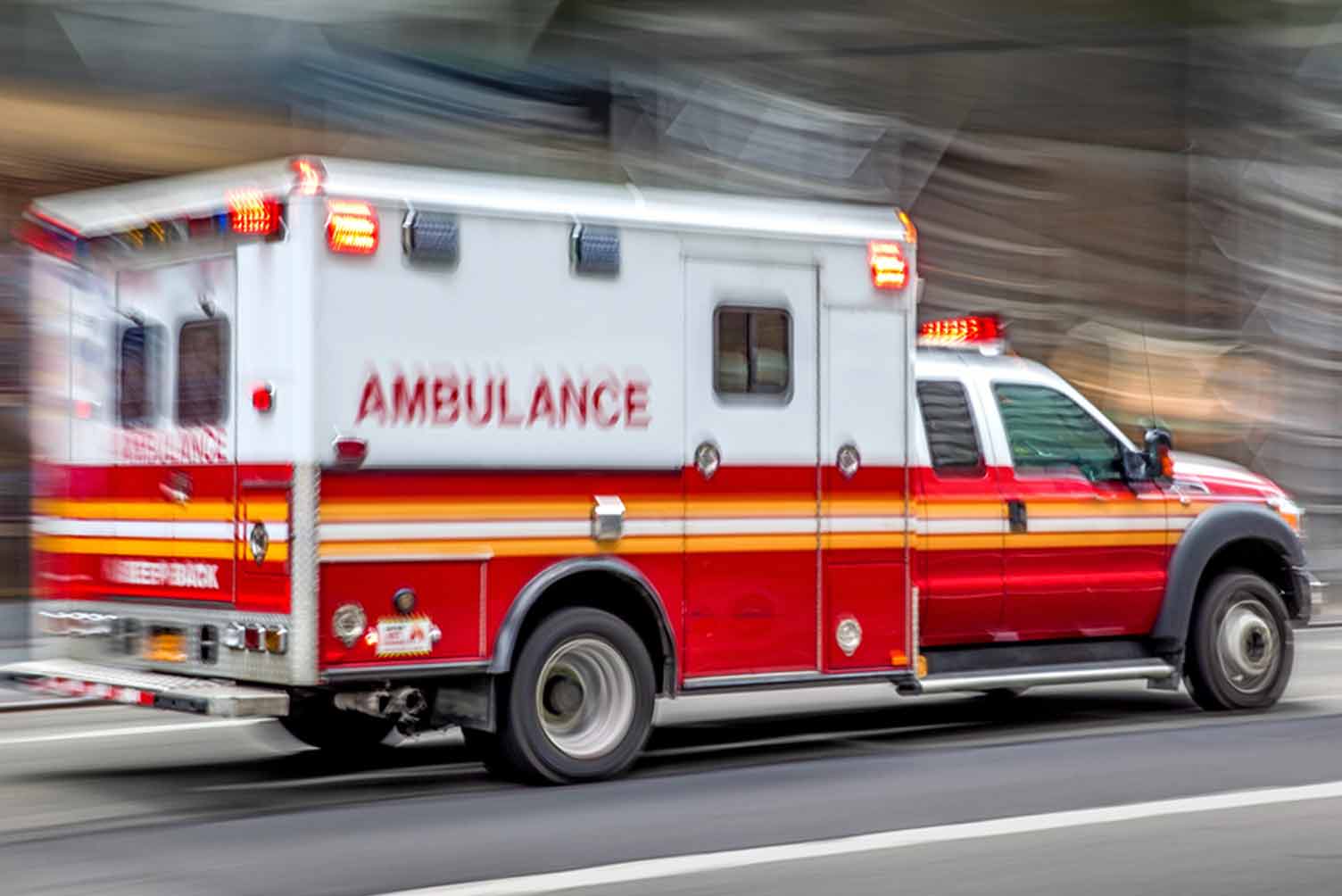Car accidents can happen for a variety of reasons, from driver negligence to adverse weather conditions. However, one scenario that raises complex questions of liability is when a driver suffers a sudden medical emergency that leads to a collision. So, who’s at fault when a medical emergency causes a car accident? In these situations, it involves weighing various factors and legal principles.
The Sudden Emergency Doctrine
Indiana recognizes something called the Sudden Emergency Doctrine which can relieve a driver of liability if they can prove that an unforeseen medical event caused them to lose control of their vehicle. This defense is based on the principle that a driver who experiences a sudden and unexpected medical emergency, such as a heart attack, seizure, or stroke, should not be held responsible for the resulting accident if they could not have reasonably anticipated or prevented the condition.
To successfully invoke the sudden medical emergency defense, a driver typically needs to establish the following:

1. The medical emergency was truly sudden and unexpected.
2. The driver had no prior knowledge or warning signs that such an event could occur.
3. The medical emergency directly caused the driver to lose control of the vehicle.
4. The driver did not act negligently or unreasonably under the circumstances.
If a driver can prove these elements, they may be absolved of liability for any injuries or damages resulting from the accident.
Foreseeability and Negligence
However, the Sudden Emergency Doctrine is not an automatic free pass. Courts will closely examine the driver’s medical history and circumstances to determine if the medical event was truly unforeseeable. If there is evidence that the driver had a pre-existing condition or prior warning signs that a medical emergency could occur, the defense may not be applicable.
For example, if a driver with a known history of seizures or heart problems chooses to drive without taking necessary precautions or following their doctor’s advice, they may be found negligent if they suffer a medical episode and cause an accident. In such cases, the driver could be held liable for any resulting injuries or damages, as they should have reasonably anticipated the potential risks and taken appropriate measures to avoid endangering others on the road.
Comparative Negligence
In some cases, both the driver who suffered the medical emergency and the other parties involved in the accident may share some degree of fault. This is where the concept of comparative negligence comes into play.
Indiana follows a comparative negligence system. This means that the total damages awarded in a personal injury case are reduced proportionally based on each party’s degree of fault. For instance, if a driver is found to be 30% responsible for an accident due to a medical emergency they should have anticipated, and the other driver is deemed 70% responsible for speeding or distracted driving, the damages awarded would be reduced accordingly.

It’s important to note that the specific laws and guidelines regarding sudden medical emergencies and liability can vary from state to state, and some states may have different approaches to handling these types of cases.
Navigating the Legal Landscape
Given the complexities involved in determining fault when a medical emergency causes a car accident, it’s often advisable to seek the guidance of an experienced personal injury attorney. An attorney can thoroughly investigate the circumstances surrounding the accident, review medical records and histories, and build a strong case to either establish or refute the sudden medical emergency defense.
Additionally, an attorney can navigate the legal landscape, including state-specific laws and precedents, to ensure that all relevant factors are properly considered and that their client’s rights and interests are protected throughout the process.
Contact Crossen Law Firm for Guidance After a Car Accident
While accidents caused by sudden medical emergencies may seem like unavoidable tragedies, the question of who’s at fault when a medical condition causes a car accident is not always straightforward. It requires a careful examination of the driver’s medical history, the foreseeability of the event, and the actions (or inactions) taken leading up to the accident.
By understanding the legal principles surrounding the sudden medical emergency defense and seeking the guidance of an experienced personal injury attorney, individuals involved in these types of auto accidents can better navigate the complexities and seek fair and just resolutions.
If you are wondering who’s at fault when a medical emergency causes a car accident, contact Crossen Law Firm today. Our team has decades of experience helping car crash victims get the compensation they deserve after they have suffered injuries at the hands of a negligent driver. Our Indianapolis car accident attorneys are dedicated advocates for those who’ve suffered injuries after an accident.
With over 20 years of experience and millions of dollars awarded in compensation to our clients, we know how to best help you obtain a favorable outcome for your situation. Call 317-401-8626 or contact us online.

 317-401-8626
317-401-8626 
.jpg)